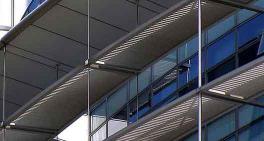Order: Mississippi judges have discretion for COVID safety
Court Watch
Mississippi judges have the power to delay trials, limit the number of spectators in courtrooms or take other steps to try to slow the spread of COVID-19, the leader of the state Supreme Court says in an emergency order.
Chief Justice Michael Randolph issued the order Thursday in response to the rapid spread of illness caused by highly contagious delta variant of the virus.
Mississippi has one of the lowest COVID-19 vaccination rates in the nation, and the state health officer, Dr. Thomas Dobbs, said Friday that 97% of new cases of COVID-19 in Mississippi are among people who are unvaccinated.
Randolph’s order said judges may postpone jury trials that are scheduled through Sept. 10. In addition to limiting the number of spectators in courtrooms, judges may require people to wear masks and maintain distance between each other. The order encouraged courts to use teleconferencing and videoconferencing, when possible.
Plea hearings in felony cases must still take place in person, but defendants and others in the courtrooms should wear masks and maintain social distancing.
“Any in-person proceedings shall be limited to attorneys, parties, witnesses, security officers, members of the press and other necessary persons, as determined by the trial judge,” Randolph wrote.
Related listings
-
Bahrain opposition leader sentenced to life by high court
Court Watch 11/03/2018A Shiite cleric who was a central figure in Bahrain's 2011 Arab Spring protests was sentenced to life in prison Sunday on spying charges.The ruling by the Supreme Court of Appeals came after Sheikh Ali Salman was acquitted of the charges by a lower c...
-
Court orders Japan company to pay 4 Koreans for forced labor
Court Watch 10/27/2018In a potentially far-reaching decision, South Korea's Supreme Court ruled that a major Japanese steelmaker should compensate four South Koreans for forced labor during Japan's colonial rule of the Korean Peninsula before the end of World War II.The l...
-
Supreme Court examines Kentucky's medical review panels
Court Watch 08/09/2018After Ezra Claycomb was born with severe brain damage and cerebral palsy, his mother considered filing a medical malpractice lawsuit. But in 2017, Kentucky's Republican-controlled legislature passed a law requiring all such lawsuits first be reviewed...

Any contracts or any transactions can go awry at any time
We know your business means a lot to you and want to understand all the aspects of your business so that we can help you in the best ways possible. We don’t discriminate depending on the size of your company. Our mission statement is to represent all business owners and entrepreneurs by navigating them through the rough waters of business litigation and guiding them to success.
We are attorneys who want to make sure we understand your business objectives and goals before we start providing you with legal counsel individualized to your business. We know what it means to be dedicated to your business. After all, we are a business as well. And just like you, we want to provide the best service we can to our clients.
Any contracts or any transactions can go awry at any time. Sometimes, making important business decisions without legal help from business attorneys could cost you your business.We don’t want you or your business to be misconstrued by anyone. Our attorneys make sure that we communicate with you often to make sure we are giving you the legal guidance you need at all times. We make sure we are responsive in a timely-manner with every single one of our clients to help them identify risks and prevent legal battles before they arise.




